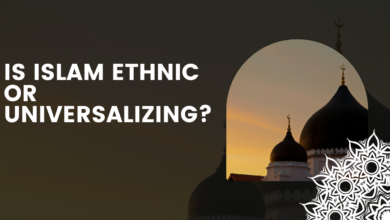Charity As Taught by Quran and Prophet Muhammad (PBUH)
Islamic Perspective on Compassionate Giving

Charity As Taught By Quran And Prophet Muhammad (PBUH)
Charity, known as “Sadaqah” or “Zakat” in Islam, holds great significance. It is a means of purifying one’s wealth and helping those in need, thus promoting social justice and compassion.

Introduction
Charity, known as “Sadaqah” in Arabic, holds a significant place in Islam. It is not merely an act of giving, but a fundamental principle deeply rooted in the faith. The Quran and the teachings of the Prophet Muhammad (PBUH) emphasize the importance of charity as a means of purifying one’s soul, helping those in need, and establishing a just and compassionate society. In this article, we explore the principles of charity as taught by the Quran and the Prophet Muhammad (PBUH).
Quranic Teachings on Charity
The Quran, the holy book of Islam, repeatedly underscores the virtue of charity and the rewards it brings. Here are some key Quranic teachings on charity:
Zakat: The Obligatory Almsgiving: One of the Five Pillars of Islam, Zakat is a mandatory form of charity for financially capable Muslims. It requires Muslims to give a portion of their wealth (usually 2.5%) to the less fortunate. The Quran mentions Zakat in numerous verses, such as in Surah Al-Baqarah (2:267-273), highlighting its significance in ensuring economic justice and the welfare of the community.
Voluntary Charity: Besides Zakat, the Quran encourages Muslims to engage in voluntary charity, known as Sadaqah. The Quran mentions in Surah Al-Baqarah (2:261-264) that even a small act of charity can have a profound impact on the giver and the recipient. It is a means to purify one’s wealth and attain spiritual growth.
Charity and Compassion: The Quran emphasizes the importance of compassion and empathy towards those in need. Surah Al-Balad (90:14-16) reminds believers of their moral duty to help the poor and the orphaned.
Also check.
- Why Does Allah Test Us?
- What is Gambling in Islam?
- Why is Hajj Important?
- What is Interest in Islam?
- Who is the God of Islam?
- Why is Pork Haram in Islam?
Prophet Muhammad’s (PBUH) Teachings on Charity
Prophet Muhammad (PBUH), the final messenger of Islam, exemplified charity through his actions and teachings. His life serves as a model for Muslims seeking to practice charity:
Generosity: The Prophet Muhammad (PBUH) was renowned for his generosity. He encouraged his followers to be generous and often said, “The most beloved deed to Allah is the most regular and constant even if it were little.” This highlights the significance of consistent acts of charity, regardless of their size.
Helping the Needy: The Prophet Muhammad (PBUH) stressed the importance of helping those in need, regardless of their religion or background. His Hadiths (sayings and actions) include many instances of him aiding the less fortunate, emphasizing the universal nature of charity.
Charity as a Shield: The Prophet Muhammad (PBUH) likened charity to a shield, protecting the giver from harm and misfortune. This metaphor illustrates the spiritual and psychological benefits of charity, as it fosters a sense of well-being and contentment.
The Concept of Ihsan (Excellence) in Charity
Islam encourages the concept of “Ihsan” or excellence in all aspects of life, including charity. This means that Muslims are encouraged to go above and beyond in their charitable acts, striving to provide not just the bare minimum but also aiming to make a meaningful difference in the lives of those in need.
Conclusion
Charity is a fundamental aspect of Islamic faith, rooted in both the Quran and the teachings of Prophet Muhammad (PBUH). It is not merely an act of giving but a means to purify one’s soul, promote economic justice, and create a compassionate society. Muslims are encouraged to practice charity in various forms, from obligatory almsgiving (Zakat) to voluntary acts of kindness (Sadaqah). By following these teachings, Muslims aim to fulfill their moral and spiritual duty and contribute to the betterment of society, ultimately striving for a more just and compassionate world.

FAQs
What is the significance of charity in Islam according to the Quran and Prophet Muhammad (PBUH)?
Charity, known as “Sadaqah” or “Zakat” in Islam, holds great significance. It is a means of purifying one’s wealth and helping those in need, thus promoting social justice and compassion.
What is the difference between Zakat and Sadaqah in Islam?
Zakat is a mandatory form of charity, while Sadaqah is voluntary. Zakat has specific criteria and is obligatory for eligible Muslims, while Sadaqah can be given at any time and in any amount.
How is the concept of charity presented in the Quran?
The Quran emphasizes charity as a means of earning Allah’s pleasure and mentions its benefits for individuals and society. Verses like Surah Al-Baqarah (2:267-273) encourage believers to give to those in need.
What is the significance of giving charity with sincerity in Islam?
Sincerity, or “Niyyah,” is essential when giving charity. Prophet Muhammad (PBUH) stressed that acts of charity should be done solely for the sake of Allah and not for showing off or seeking praise.
Are there specific guidelines for calculating and distributing Zakat in Islam?
Yes, Zakat has specific guidelines for calculation and distribution. It is typically 2.5% of a Muslim’s accumulated wealth and should be given to eligible recipients, such as the poor, orphans, and those in need.
What are some of the virtues associated with charity in Islam?
Charity is considered a virtuous act in Islam. It purifies wealth, earns Allah’s rewards, helps those in need, and strengthens the sense of community and empathy among believers.
Can non-Muslims also give and receive charity in Islam?
Yes, Islam encourages acts of charity towards all people, regardless of their religion. Muslims can give charity to non-Muslims, and non-Muslims can also provide charity to Muslims.
Are there any specific times or occasions when charity is highly recommended in Islam?
Giving charity is recommended at all times, but certain occasions, such as Ramadan, Eid, and times of hardship, are especially encouraged for increased acts of charity.
How does Prophet Muhammad (PBUH) exemplify the concept of charity in his life?
Prophet Muhammad (PBUH) was known for his generosity and kindness. He regularly gave to those in need, even when he had limited resources, setting an example of selflessness and compassion.
Can charity in Islam include non-monetary forms of assistance, such as volunteering or providing knowledge and skills?
Yes, charity in Islam is not limited to money. It can also include volunteering, sharing knowledge, offering skills, and providing any form of assistance that benefits others and is done with a sincere intention.




